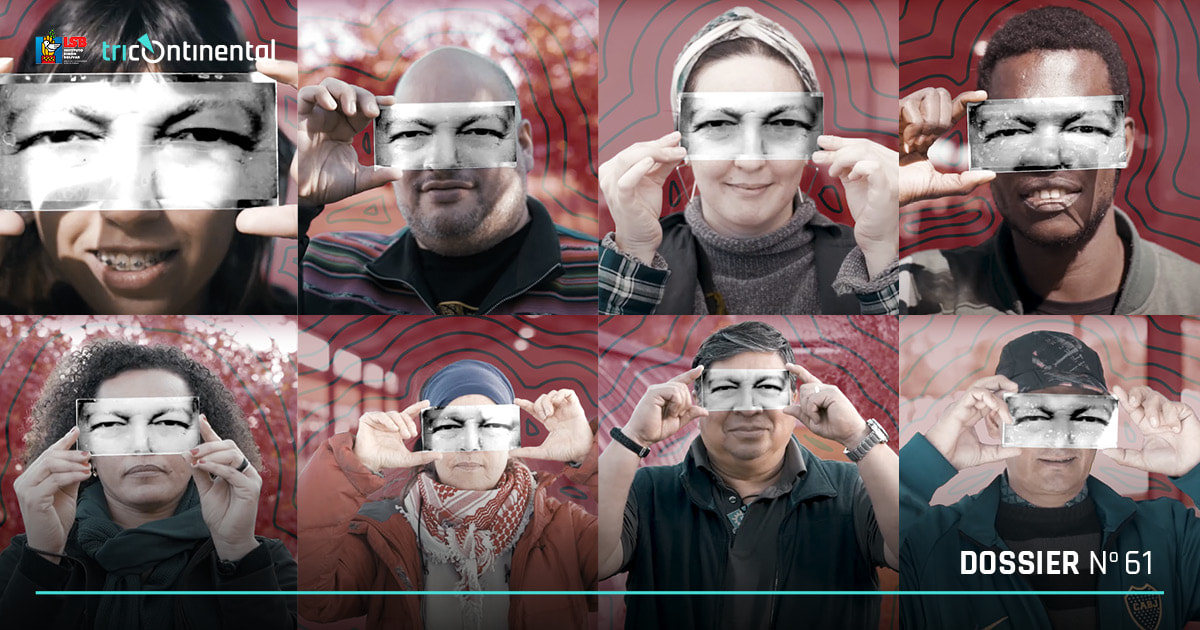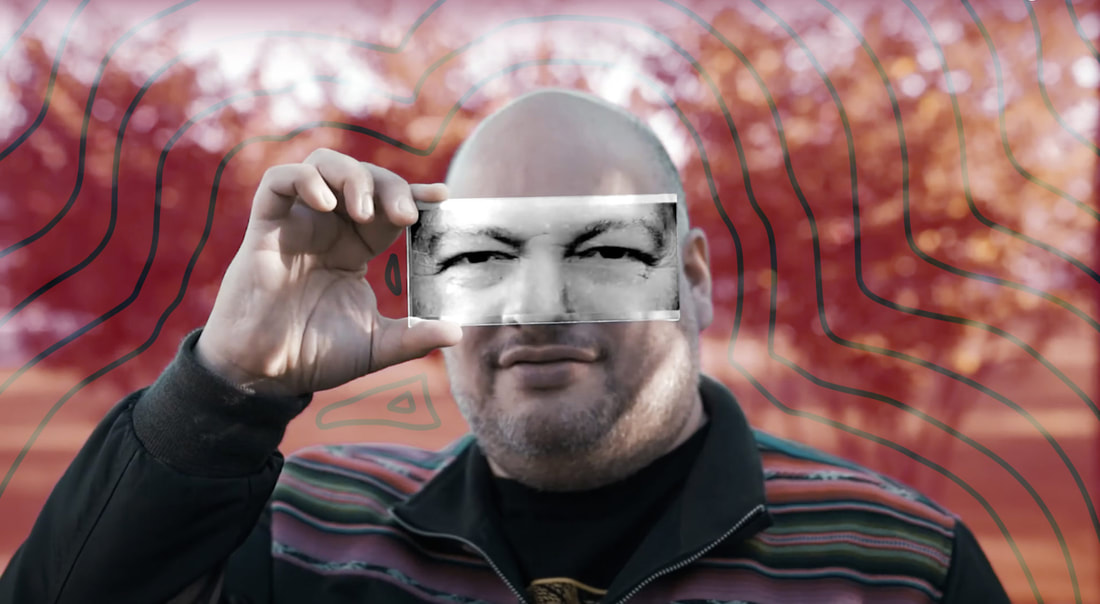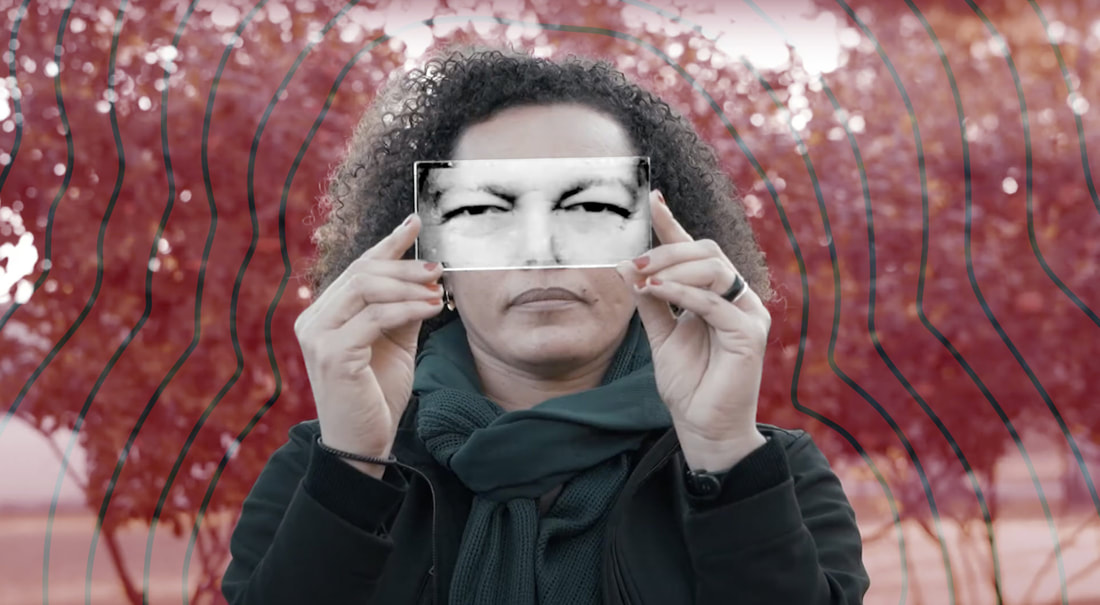|
3/7/2023 Those Who Die for Life – like Hugo Chávez – Cannot Be Called Dead: The Ninth Newsletter (2023) By: Vijay PrashadRead NowDear friends, Greetings from the desk of Tricontinental: Institute for Social Research. On 28 October 2005, a special event was held in Caracas at the National Assembly of the Bolivarian Republic of Venezuela. At this gathering, held on the birthday of Simón Rodríguez (Simón Bolívar’s teacher), the Venezuelan government announced that nearly 1.5 million adults had learned to read through Mission Robinson, a mass literacy programme that it initiated two years earlier. The mission was named after Rodríguez (who was also known by the pseudonym Samuel Robinson). One of those adults, María Eugenia Túa (age 70), stood beside President Hugo Chávez Frías and said, ‘We are no longer poor. We are rich in knowledge’. The Venezuelan government built Mission Robinson based on a Cuban teaching method for adult literacy called Yo sí puedo (‘Yes I can’) developed by Dr. Leonela Relys Díaz of the Latin American and the Caribbean Pedagogical Institute (IPLAC) in Cuba. On that day, Venezuela declared to the United Nations that its people had transcended illiteracy. The previous year, in December 2004, Chávez spoke at the graduation ceremony of 433 students from the Yo sí puedo programme held at the Teresa Carreño Theatre in Caracas. Mission Robinson, Chávez said, is going to ‘organise the army of light’ that will take literacy to the people, wherever they live, taking ‘Mohammed to the mountain’. Commenting on the educational journey of one of the graduates, Chávez described the opportunities that stem from literacy: ‘She has not wasted any time and is already learning mathematics and geography, Spanish language and literature. And she is studying Bolivarian ideas because she can read. She can read the Constitution. She can read Bolívar’s writings. She can read the letters that Bolívar wrote’. The Bolivarian process organised the distribution of world literature and non-fiction books to libraries created in working class neighbourhoods in order to ‘arm ourselves with knowledge’, Chávez said. Quoting the Cuban national hero José Martí, Chávez reflected on the relationship between education, emancipation, and the history being made by the Venezuelan people: ‘To be cultured in order to be free. To know who we are, to know our history in depth, that history from which we come’. For Rosa Hernández, one of the graduates, the mission provided ‘clarity because before there was darkness. Now that I know how to read and write… I see everything clearly’. María Gutiérrez, Rosa’s classmate, said that her entry into the ‘army of light’ took place ‘thanks to God, to my president, and to the teachers who taught me’. Ten years ago, on 5 March 2013, Hugo Chávez died in Caracas after a prolonged fight against cancer. His death rattled Venezuela, where large sections of impoverished workers mourned not just a president, but the man they felt was their comandante. As Chávez’s cortege passed through Bolívar Square, Alí Primera’s 1976 song, Los que mueren por la vida (‘Those Who Die for Life’), rang out from the crowd: Those who die for life Can’t be called dead. And from this moment It is forbidden to cry for them. It is forbidden to cry, they sang, not because they did not want to grieve, but because it was clear that the legacy of Chávez was not in his own life but in the difficult work of building socialism. Six years after Chávez’s death, I walked with Mariela Machado through the Kaikachi housing complex where she lived, in the La Vega neighbourhood of Caracas. During Chávez’s first presidential term, Mariela, her family, and 91 other families occupied a plot of land that had been given to corporate developers by a previous administration but left empty. These working-class families – many of them Afro-Venezuelan – went directly to Chávez and asked to build houses on the plot. ‘Can you do it?’, Chávez asked them. ‘Yes’, said Mariela. ‘We built this city. We can build our own homes. All we want are machines and materials’. And so, with resources from the city, Mariela and her comrades built their modest apartment buildings. A bust of Chávez sits outside of the community centre, where there is a bakery that provides affordable, high-quality bread to the residents; a kitchen that feeds 400 people; a community hall; and a small room where women sew clothes for a business that they run. ‘We are Chavistas’, another woman told me, her eyes shining, a child at her hip. The word ‘Chavista’ has a special resonance in places such as this. It is not uncommon to see t-shirts with Chávez on them, his image and the iconic ‘Chávez eyes’ everywhere. When I asked Mariela what will happen to Kaikachi if the Bolivarian process falls, she pointed to the neighbouring apartment buildings of the well-heeled and said, ‘If the government falls, we will be evicted. We – Black, poor, working class – will lose what we have’. Mariela, Rosa, María, and millions of other people like them – ‘Black, poor, working class’, as Mariela said, but also indigenous and marginalised – carry with them the new vital energy of the Bolivarian Revolution, which began with Chávez’s electoral victory in 1998 and continues to this day. This sentiment is encapsulated in the Chavista slogan, ‘We are the Invisible. We are the Invincible. We will overcome’. Observers of the Bolivarian Revolution often point to this or that policy in order to understand or define the process. But what is rarely acknowledged is the theory that Chávez developed during his fifteen years as president. It is as if Chávez did things but did not think about them, as if he was not a theorist of the revolutionary process. Such attitudes towards leaders and intellectuals of the working class are insidious, reducing the strength of their intellect to a spate of thoughtless or spontaneous actions. But, as Chávez (and many others) showed, this bias is unfounded. Each time I saw Chávez, he wanted to talk about the books he had been reading – Marxist classics, certainly, but also the newest books in Latin America (and always the latest writings of Eduardo Galeano, whose book, Open Veins of Latin America, he gave to US President Barack Obama in 2009). He was concerned with big ideas and questions of the day, above all the challenges of building socialism in a poor country with a rich resource (oil, in the case of Venezuela). Chávez was constantly theorising, reflecting and elaborating upon the ideas shared with him by women such as Mariela, Rosa, and María, and testing these ideas through practical experiments in policy. Bourgeois narratives are quick to dismiss the country’s literacy campaign as nothing extraordinary, but this misses its significance entirely, both in terms of its underlying theory and its immense impact on Venezuelan society. The point of Mission Robinson was not merely to teach people how to read, but also that the Yo sí puedo curriculum would encourage political literacy. As Chávez said of the Yo sí puedo graduate in 2004, ‘she is studying Bolivarian ideas because she can read. She can read the Constitution. She can read Bolívar’s writings’. This graduate would become one of many women leaders in her community. Another, Alessandra Trespalacios, participated in social programmes in a wretchedly poor area and became a leader in the Altos de Lidice Commune’s community council and health clinic. It is women such as Alessandra who began to weigh children and the elderly in their neighbourhood as a part of their poverty eradication policy, and who would give the underweight extra food from their stores. ‘We are motivated by love’, she said, but also by the revolutionary ideas that she and her fellow students learnt from Mission Robinson. To commemorate the ten-year anniversary of Hugo Chávez’s death, Tricontinental: Institute for Social Research and Simón Bolívar Institute for Peace and Solidarity (Venezuela) are pleased to offer you our dossier no. 61, The Strategic Revolutionary Thought and Legacy of Hugo Chávez Ten Years After His Death (February 2023). This text is a preliminary account of Chávez’s revolutionary theory, which was built out of the necessity to improve the everyday lives of the Venezuelan people, out of the challenge to construct housing, health care, and literacy programmes, but then went further, delving into how to transform the country’s productive relations and defend the sovereignty of Venezuela and Latin America from US imperialism. It is, as we write, a theory that is ‘alive and entirely revolutionary’ and not ‘a recipe nor a set of dry academic reflections’. The thinking of Chávez starts at the desk of an indigenous woman in the heart of the Venezuelan plains, a woman whose reading of the Constitution of 1999 – ratified with a 72% vote in favour – motivated her to become a leader in her town, perhaps of Sabaneta (in Barinas state), where Chávez was born on 28 July 1954. That’s always the start of his theory. We hope you will read, share, and discuss our dossier to better understand the praxis of the Bolivarian Revolution. A few years ago, Anacaona Marin, who leads the El Panal commune in the 23 de Enero barrio in Caracas, told me, ‘A connection is often made between socialism and misery. In our work, through the Chávez method, this connection will be broken. It cannot be broken by words alone, but by deeds. That is chavismo’. Warmly, Vijay AuthorVijay Prashad is an Indian historian, editor, and journalist. He is the chief editor of LeftWord Books and the director of Tricontinental: Institute for Social Research. He is a senior non-resident fellow at Chongyang Institute for Financial Studies, Renmin University of China. He has written more than 20 books, including "The Darker Nations" and "The Poorer Nations." His latest book is "Washington Bullets," with an introduction by Evo Morales Ayma. This article was republished from TriContinental. Archives March 2023
0 Comments
Leave a Reply. |
Details
Archives
July 2024
Categories
All
|



 RSS Feed
RSS Feed